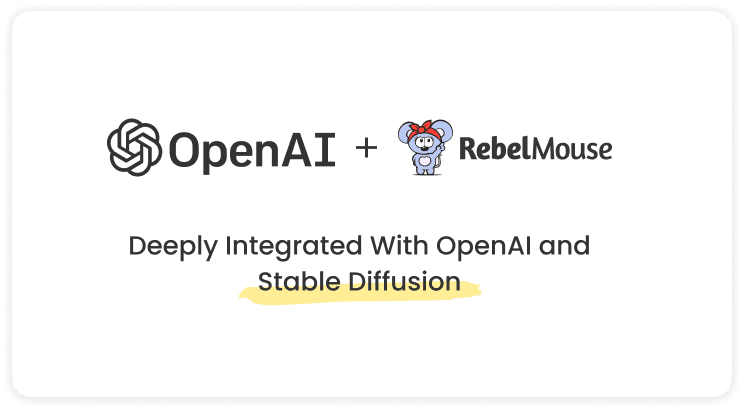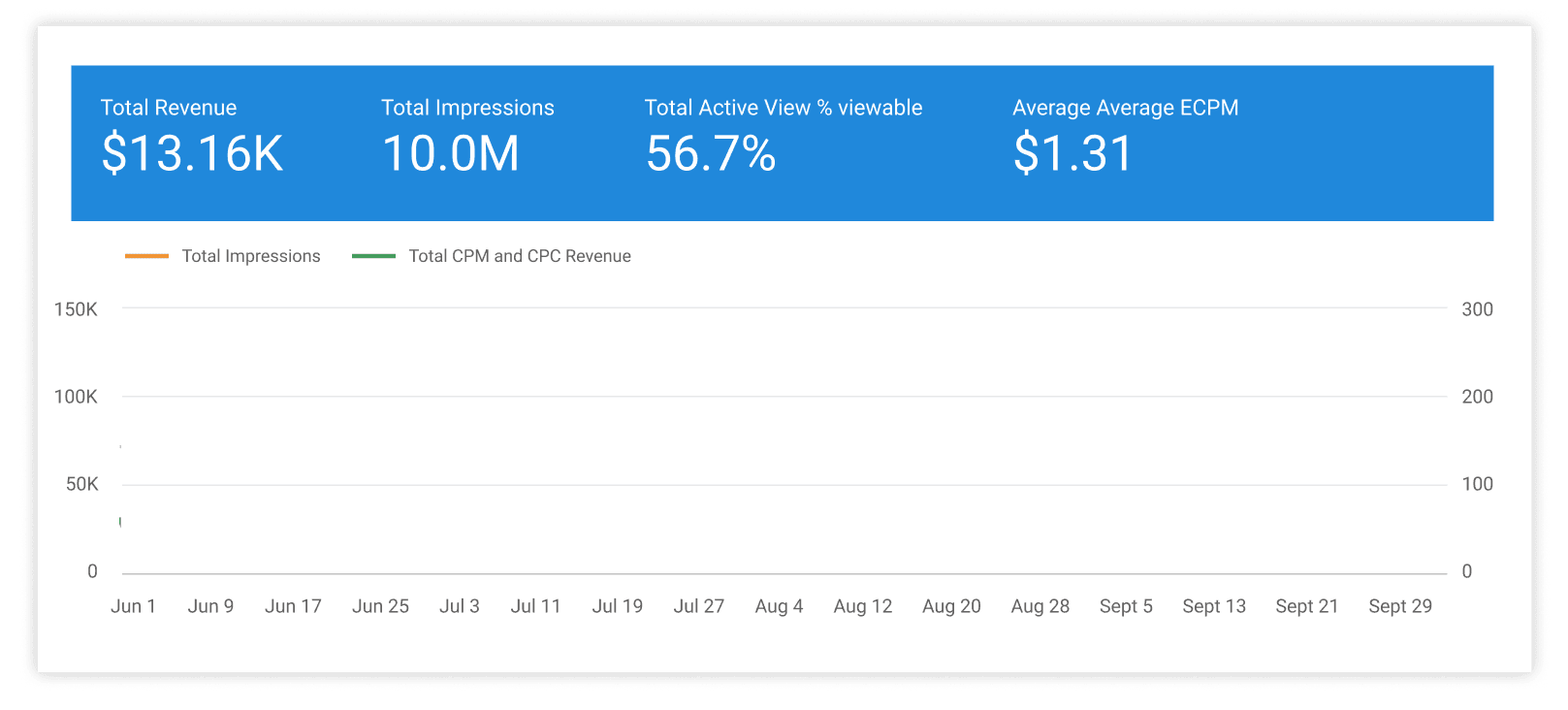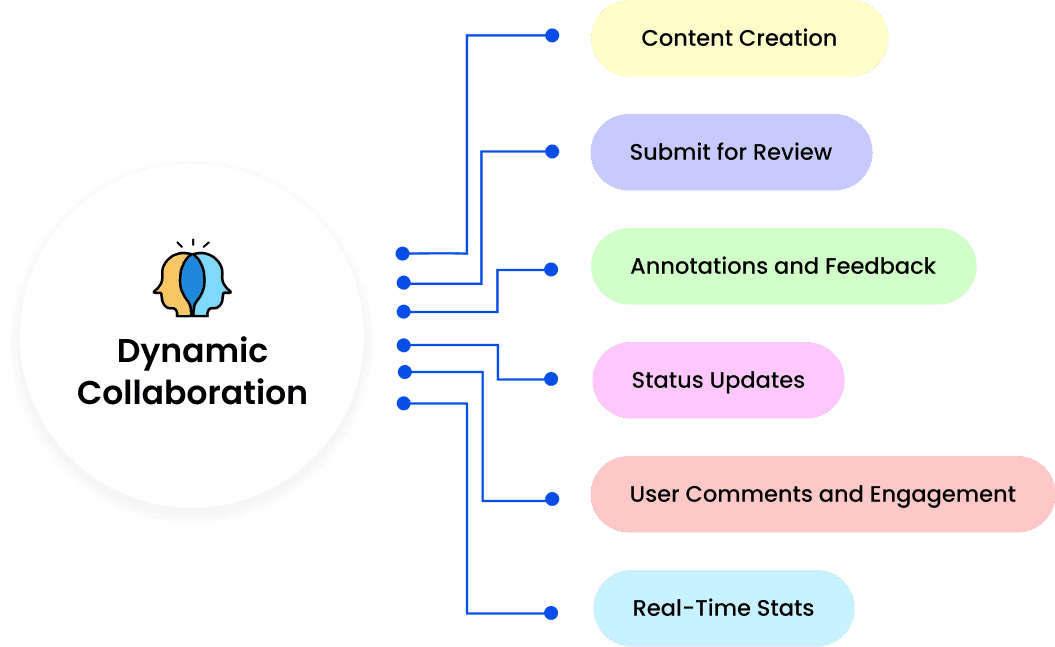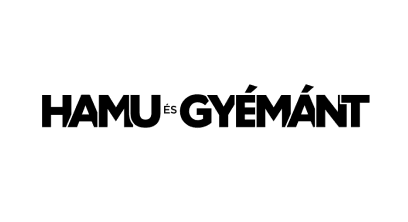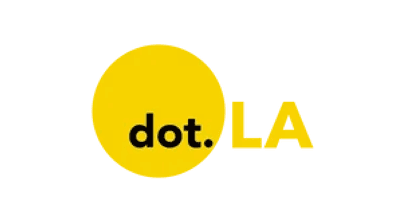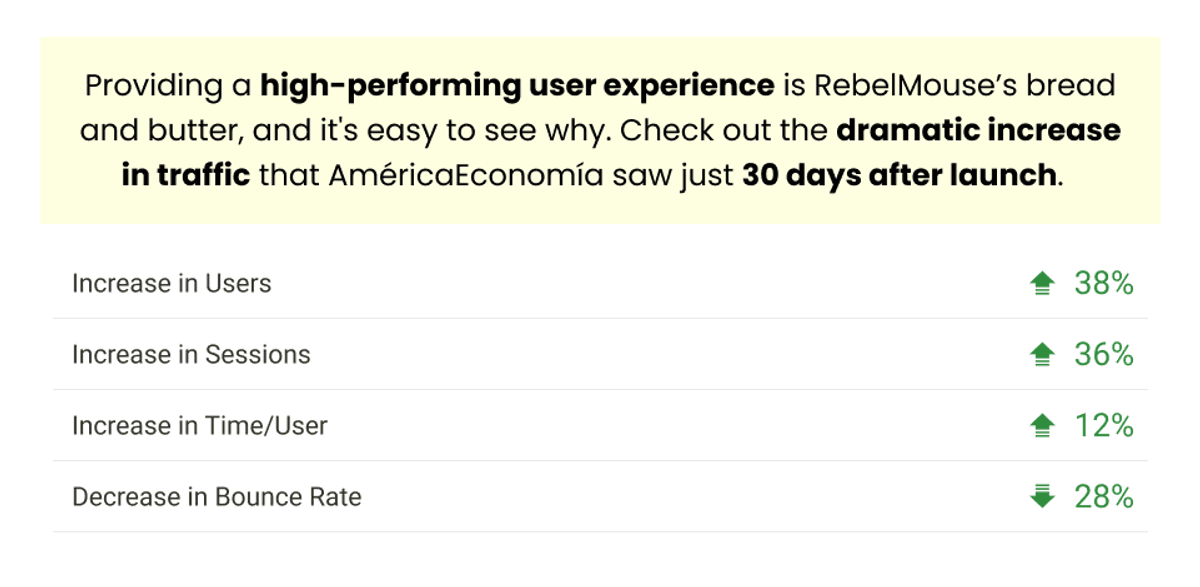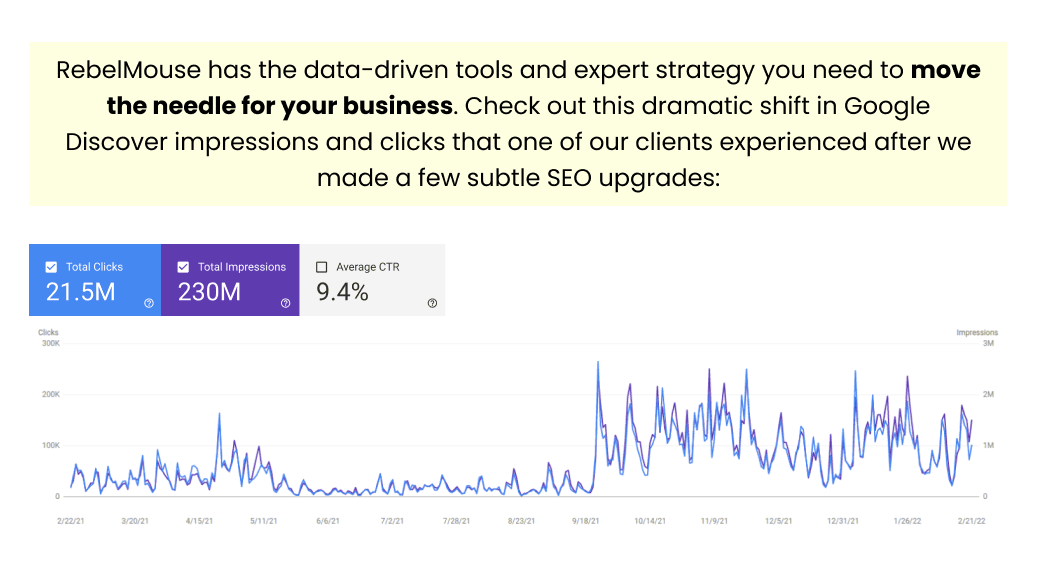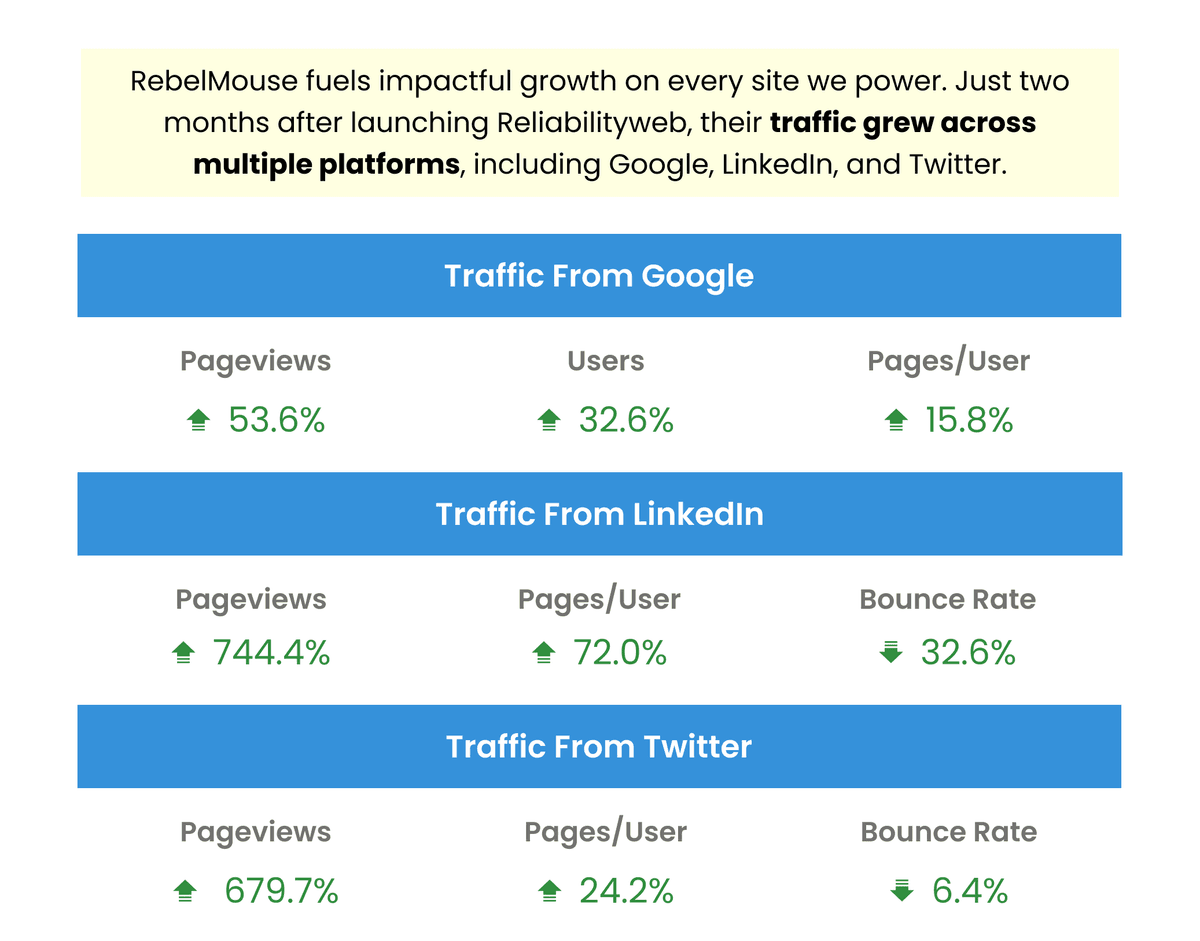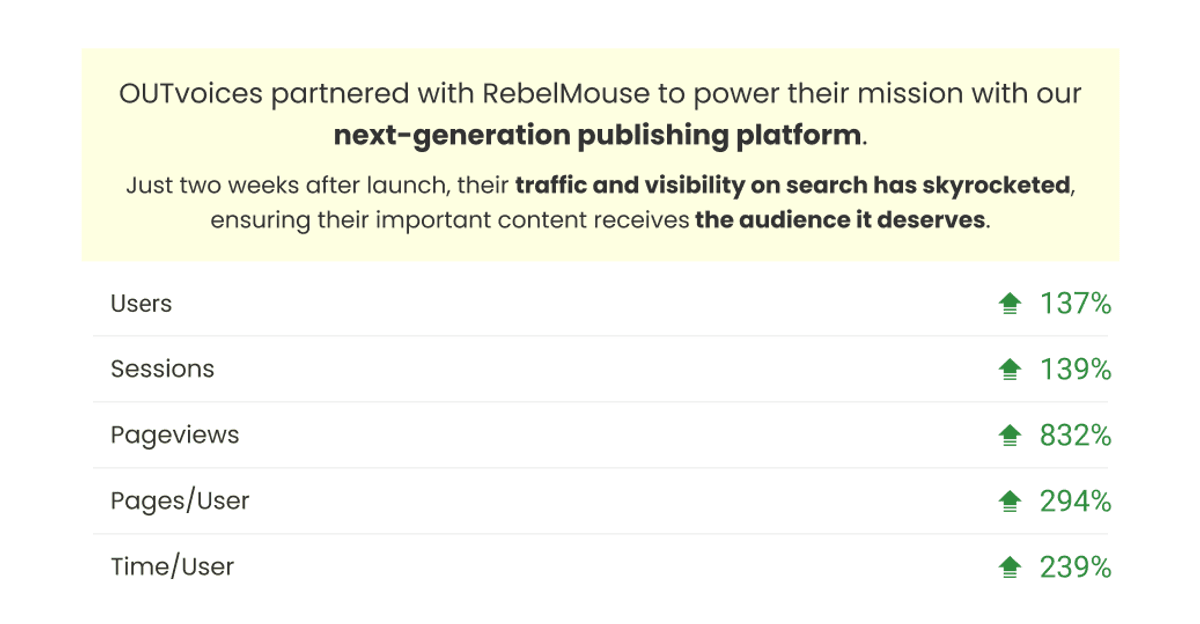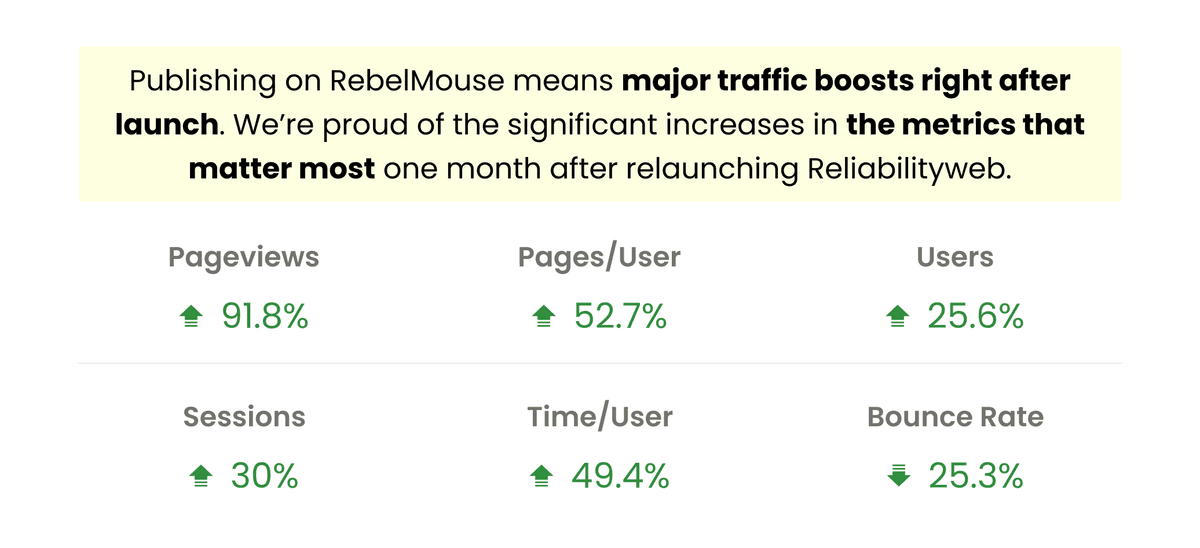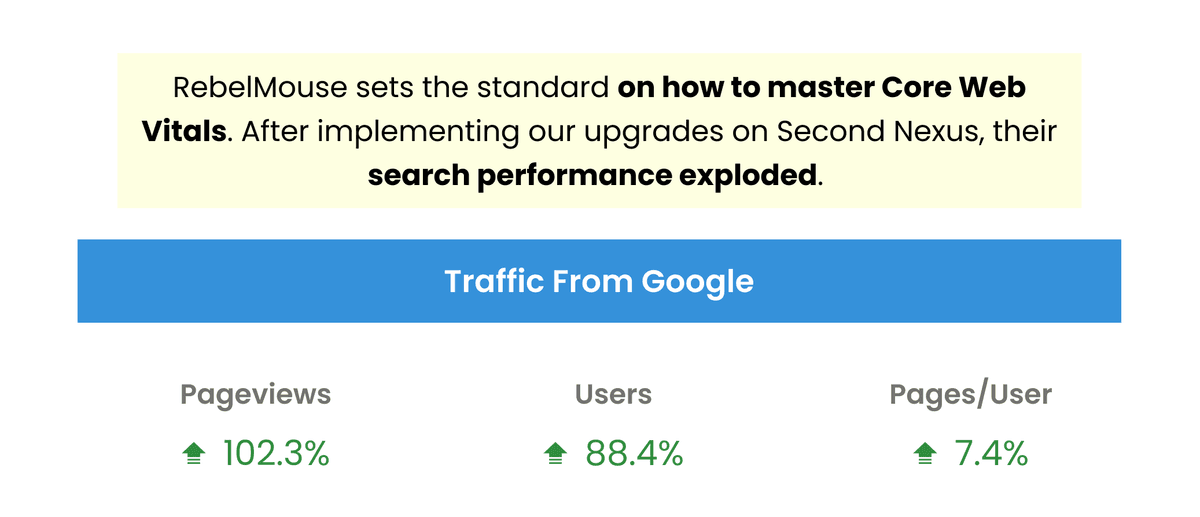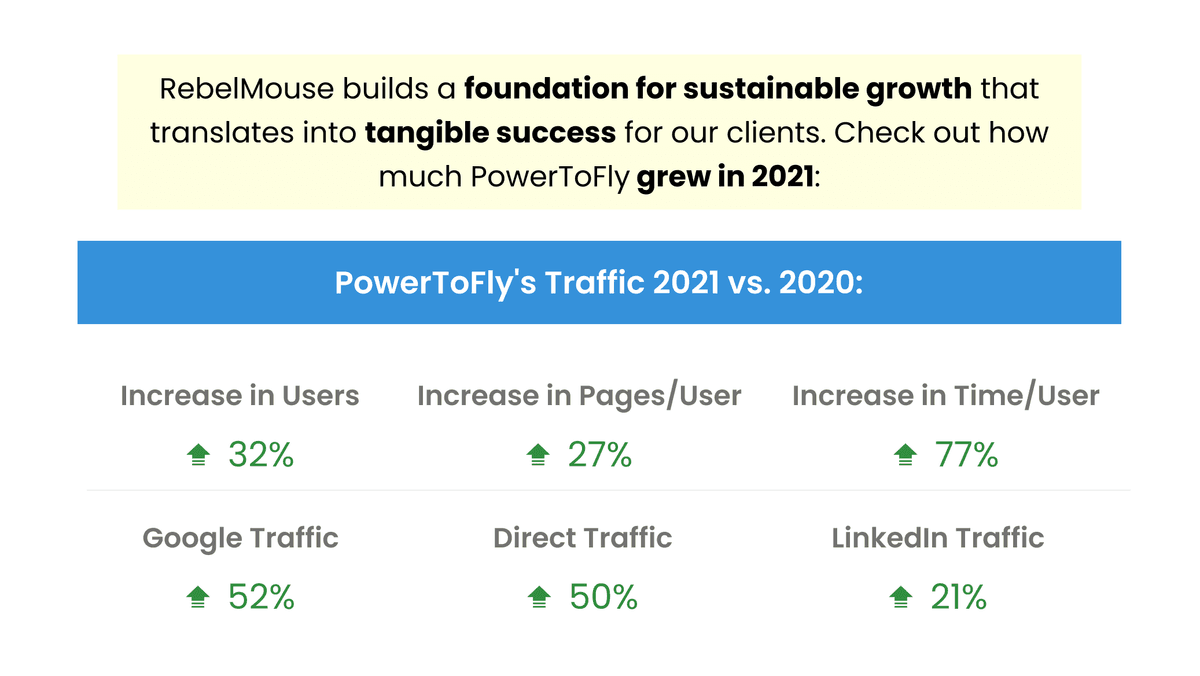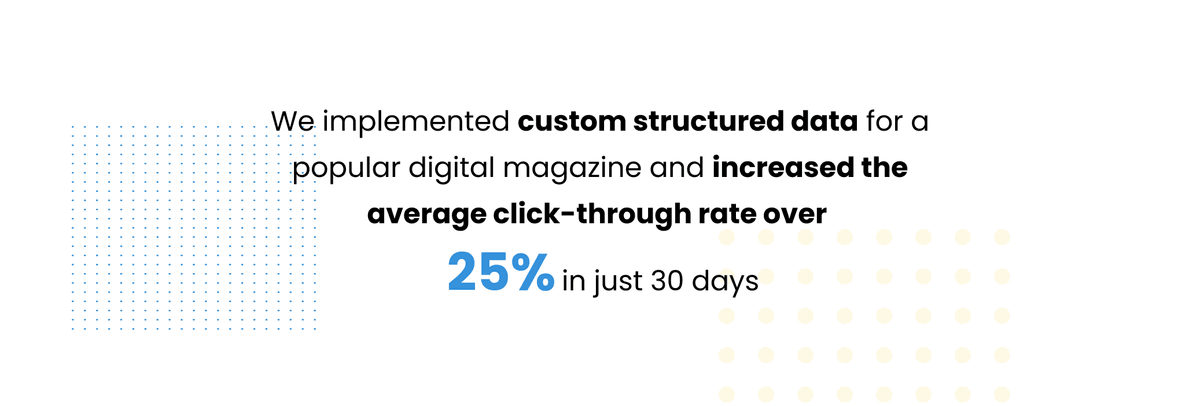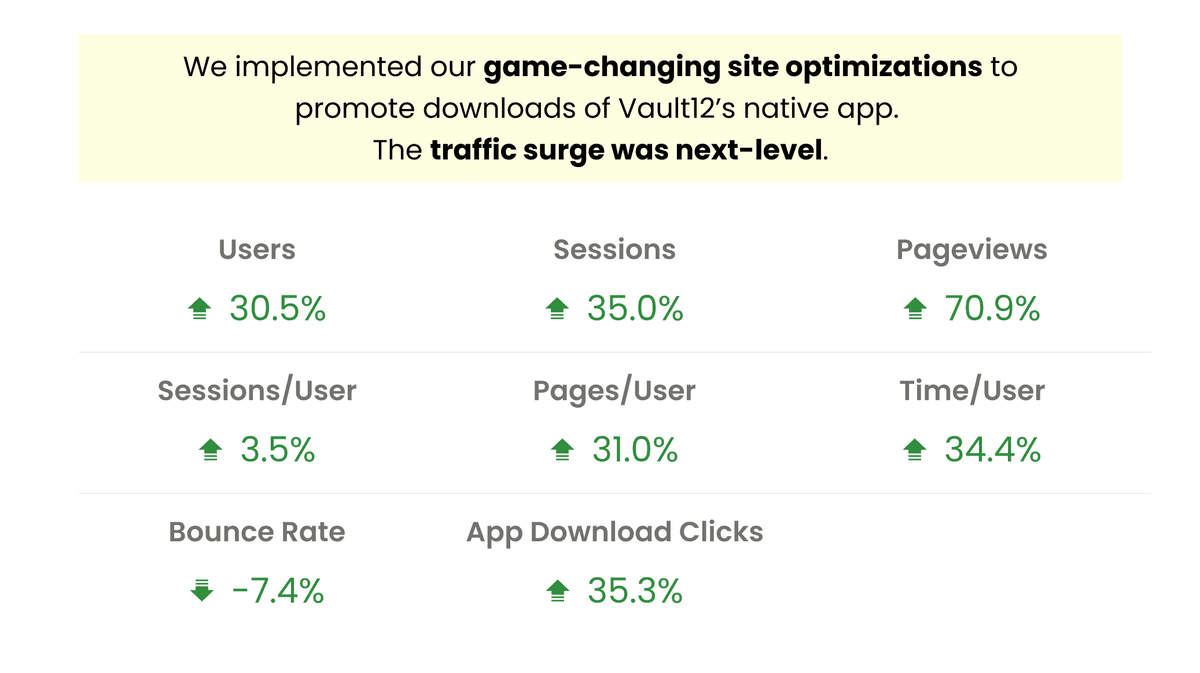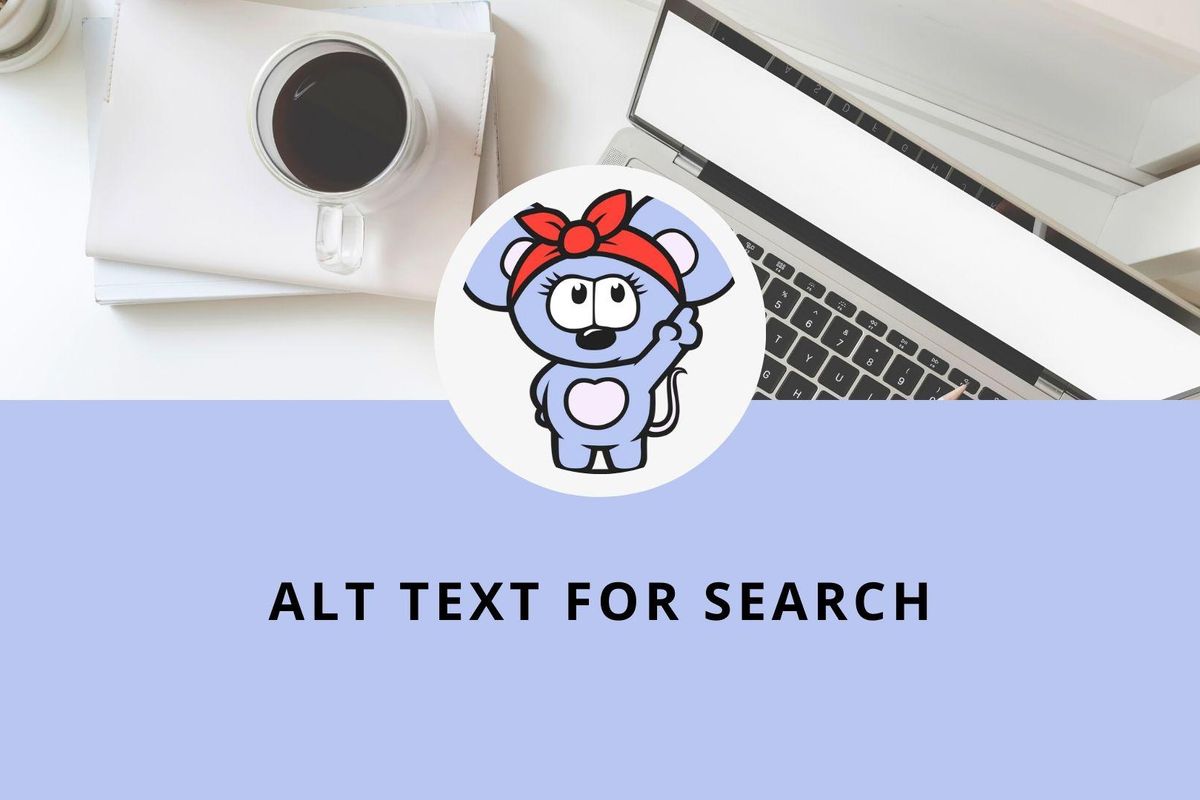
Alt text is an important part of any search strategy, but many content creators may not even be familiar with what it is. Here’s what you need to know about alt text and how it can improve your content’s usability and performance on search.
What Is Alt Text?
Alt text, which is short for alternative text for images, is very important for accessibility, and can also have benefits for SEO. Briefly, alt text is wording that is added to an image to describe it to search engines. It also allows people using screen readers to be able to know what the image is without actually being able to see it.
Here’s a quick three-minute explainer on alt text from Google:
Since alt text is designed to describe an image for someone who cannot view it, it should be more detailed than a traditional photo caption.
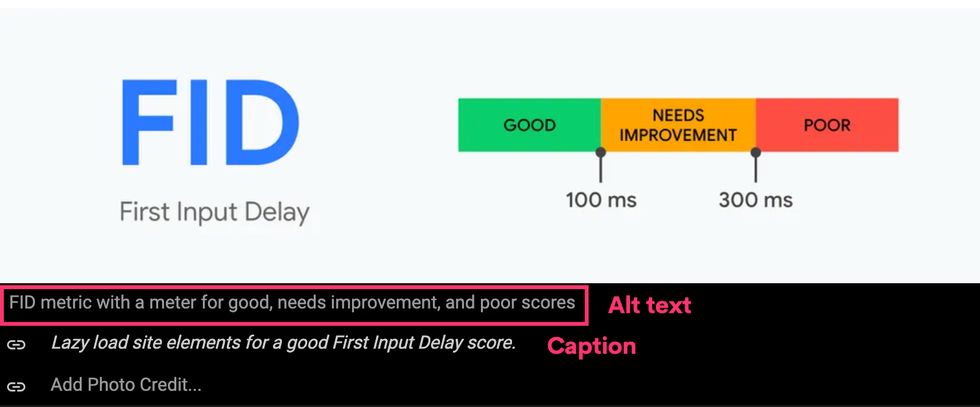
Differences of wording between caption and alt text. Both are easy to implement on the RebelMouse platform.
Alt text is an HTML tag included alongside an image attribute. As you can see from the image above, the RebelMouse platform makes it easy to incorporate alt text during the editing process.
What Are Some Best Practices for Writing Alt Text?
Google’s Search Advocate John Mueller has said that Google has no specific guidelines regarding alt text. This came up during a recent Google SEO office hours hangout , when Muller dispelled speculation that Google only crawls the first 16 words of an alt text tag.
Mueller said that there are actually no restrictions for how long your alt text can be, and that in terms of SEO, you can add a lot of wording to an alt text tag as long as it's relevant for that particular image.
Here’s a helpful example from Mueller of what kind of relevant text can improve your alt text:
If you have a picture of a beach, you could use an alt text and say, ‘Oh this is a beach.’ But you could also say, ‘this is the beach in front of our hotel or this is the beach that we took a photo of when we were doing a chemical cleanup.’ And kind of those intents are very different and people would be searching in different ways in Google Images to find more information there. And giving that extra context always makes sense, in my opinion.”
While this guidance from Google may seem vague, it’s safe to say that any effort to describe an image with helpful context is better than nothing. However, Google does clearly mention in its best practices for images documentation that you should not stuff keywords into your alt text tags . This means you should not use the alt text field as an opportunity to mindlessly input your desired search phrases, or even the name of your company , with no context.
Here’s an example from Google of keyword stuffing in the alt text attribute:

From Google.
How Does Alt Text Impact My Search Ranking?
The impact of alt text on your search rankings is, like most things related to SEO, a bit hard to determine. While Google hasn’t directly mentioned alt text as an official search ranking factor, it has given several clues to its importance. For example, their guidelines do state that keyword stuffing alt text attributes like mentioned above could cause your site to be marked as spam and negatively impact your site’s search rankings.
In 2020, Mueller gave another nugget of insight into alt text’s impact on SEO . He said the alt text attribute is particularly important for image search, and that “using the alt attribute is a good way to tell us this is on that image and we’ll get extra information from around your page with regard to how we can rank that landing page.”
So the quick answer is yes, alt text is an important part of your holistic SEO strategy.
While making sure that every image on your site has appropriate alt text will not be a quick fix to better performance on search, it is an important part of your site’s usability and overall SEO strategy. Plus, when done correctly and with appropriate context, it’s another chance to reinforce your content’s search phrase for Google’s crawler.
Start Solving the Search Puzzle
Today’s modern search strategy requires putting together a lot of moving pieces, including the implementation of technical SEO, putting together a search-centered content strategy, and publishing to a high performance website .
RebelMouse is a modern CMS that weaves in every aspect of SEO into our product and your content creation workflow. Not only do we follow all of Google’s best practices for images, but you can easily manage alt text directly from our editing interface and optimize every piece of content for success on search . Additionally, our platform is known for delivering industry-leading page performance, and includes SEO must-haves like structured data right out of the box.
Stop stressing about checking off every box needed for a perfect SEO strategy. Let us do it for you. Request a proposal today to get started.
























